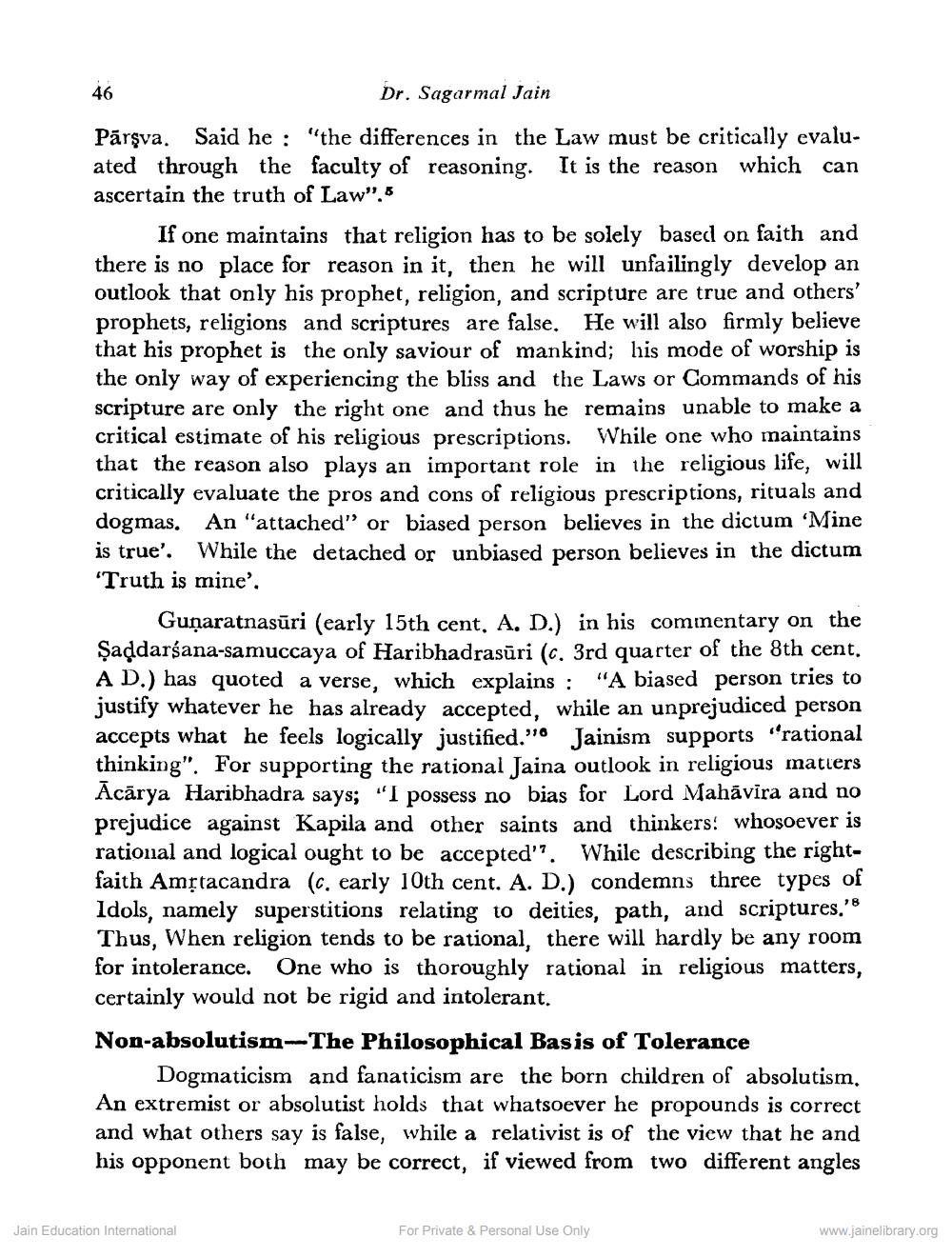Book Title: Philosophical Foundation of Religious Tolerance in Jainism Author(s): Vilas Sangve Publisher: USA Federation of JAINA View full book textPage 4
________________ 46 Dr. Sagarmal Jain Pārşva. Said he : "the differences in the Law must be critically evaluated through the faculty of reasoning. It is the reason which can ascertain the truth of Law". If one maintains that religion has to be solely based on faith and there is no place for reason in it, then he will unfailingly develop an outlook that only his prophet, religion, and scripture are true and others' prophets, religions and scriptures are false. He will also firmly believe that his prophet is the only saviour of mankind; his mode of worship is the only way of experiencing the bliss and the Laws or Commands of his scripture are only the right one and thus he remains unable to make a critical estimate of his religious prescriptions. While one who maintains that the reason also plays an important role in the religious life, will critically evaluate the pros and cons of religious prescriptions, rituals and dogmas. An "attached" or biased person believes in the dictum 'Mine is true'. While the detached or unbiased person believes in the dictum 'Truth is mine'. Gunaratnasūri (early 15th cent. A. D.) in his commentary on the Saddarsana-samuccaya of Haribhadrasūri (c. 3rd quarter of the 8th cent. A D.) has quoted a verse, which explains : "A biased person tries to justify whatever he has already accepted, while an unprejudiced person accepts what he feels logically justified.” Jainism supports "rational thinking". For supporting the rational Jaina outlook in religious matters Ācārya Haribhadra says; "I possess no bias for Lord Mahāvīra and no prejudice against Kapila and other saints and thinkers: whosoever is rational and logical ought to be accepted". While describing the rightfaith Amộtacandra (c, early 10th cent. A. D.) condemns three types of Idols, namely superstitions relating to deities, path, and scriptures.'' Thus, When religion tends to be rational, there will hardly be any room for intolerance. One who is thoroughly rational in religious matters, certainly would not be rigid and intolerant. Non-absolutism-The Philosophical Basis of Tolerance Dogmaticism and fanaticism are the born children of absolutism. An extremist or absolutist holds that whatsoever he propounds is correct and what others say is false, while a relativist is of the view that he and his opponent both may be correct, if viewed from two different angles Jain Education International For Private & Personal Use Only www.jainelibrary.orgPage Navigation
1 2 3 4 5 6 7 8 9 10 11 12 13 14
